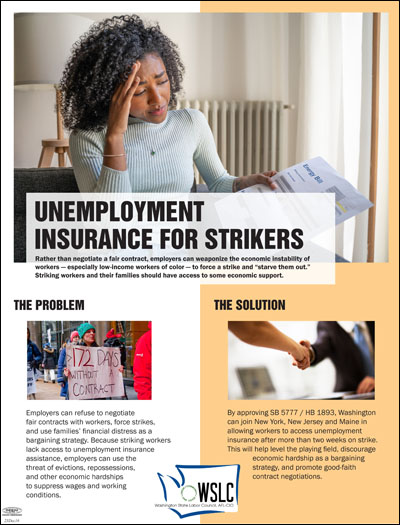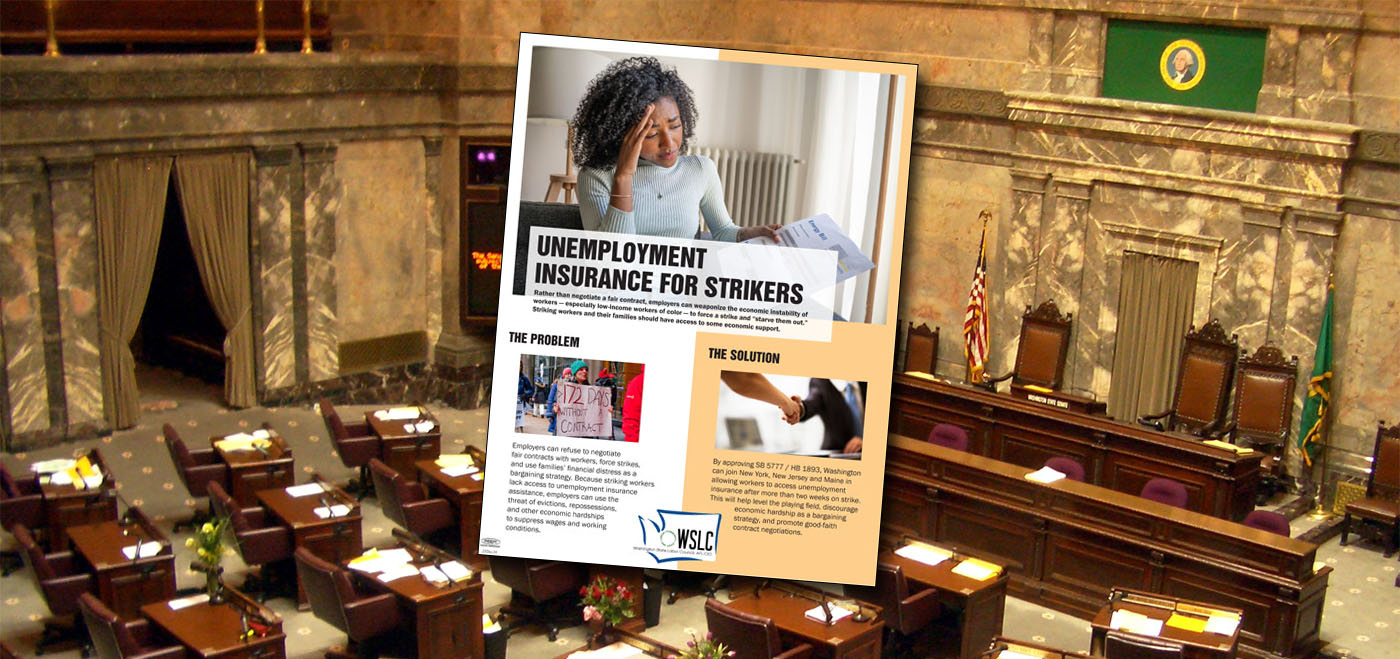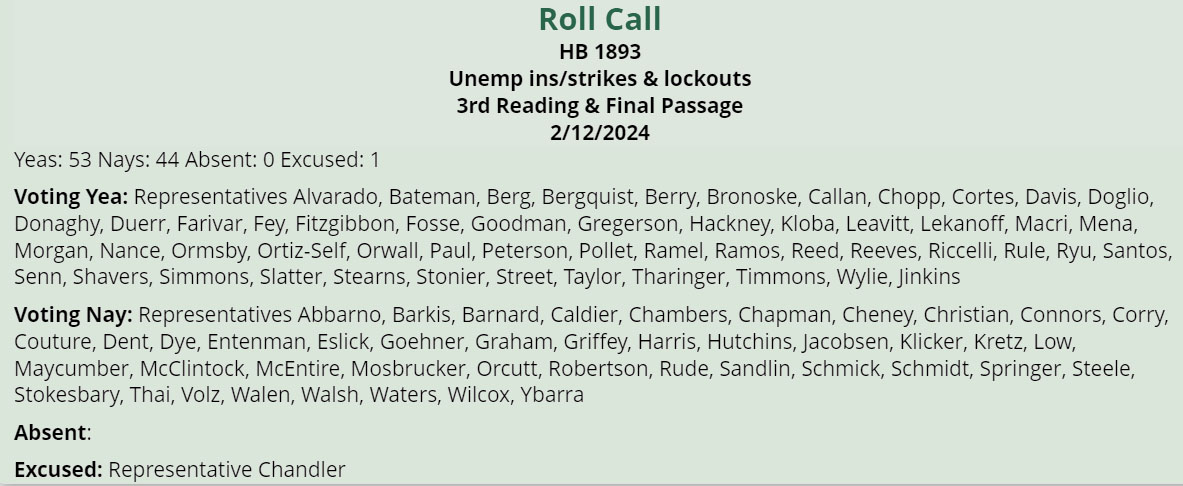STATE GOVERNMENT
ACTION ALERT! Tell your senator: Pass HB 1893
OLYMPIA (Feb. 22, 2024) — Washington state senators must ACT NOW to support HB 1893 allowing striking workers to access limited unemployment benefits. The state House of Representatives stood with working families by passing this important bill, but the Senate has yet to vote on it. And time is running out.
TAKE A STAND — Even if you’ve already contacted your legislators on this issue, PLEASE SEND ANOTHER MESSAGE TODAY to your State Senator: Bring HB 1893 to the Senate floor for a vote, and VOTE YES!
Without HB 1893, intransigent employers can use the threat of evictions, repossessions, and other extreme economic hardships as a bargaining strategy. In particular, this harms low-wage workers who can never afford to exercise their right to withhold their labor.
Under HB 1893 as approved by the House (see roll call vote above), workers on strike would have a 14-day waiting period before they could apply for unemployment benefits, which would then be limited to four weeks. Now, even with its limitations on benefits, lobbying groups representing some of the biggest corporations in Washington are fighting hard to kill this bill. They don’t want striking workers to have any lifeline at all.
Please send a message today urging your Washington state senator to stand with workers instead of corporate lobbyists!
 HB 1893, sponsored by Rep. Beth Doglio (D-Olympia), are among the priority bills in the Washington State Labor Council’s 2024 Legislative Agenda. Here are some excerpts from the WSLC’s fact-sheet in support of its passage:
HB 1893, sponsored by Rep. Beth Doglio (D-Olympia), are among the priority bills in the Washington State Labor Council’s 2024 Legislative Agenda. Here are some excerpts from the WSLC’s fact-sheet in support of its passage:
● Workers join together in unions to negotiate for family-supporting wages, safer working conditions, and respect on the job. But some employers refuse to reach contract agreements. Instead, they choose to “starve workers out” by locking them out or forcing a strike. Locked-out workers have access to unemployment insurance benefits in Washington, but striking workers do not.
● Employers’ refusal to negotiate is a feature of their bargaining strategy, not a bug. In the recent strike by entertainment industry writers, a studio executive made their strategy clear: “Allow things to drag on until union members start losing their apartments and losing their houses.” It is reprehensible that employers build their bargaining strategy around the evictions of employees’ families.
● Strikes lasting more than two weeks are rare. BLS data shows only three major strikes since 2009 lasting more than two weeks which could qualify under this bill. Strikes are a last resort, and no one goes on strike lightly. Strikes can also impact earned retirement benefits, health insurance, and prescription drug coverage. Unemployment is a partial wage replacement, and employers are always better able to weather a strike than the workers.
● Washington’s unemployment trust fund is in good shape. We have carefully stewarded our trust fund and, unlike other states, did not take out a loan for UI during the pandemic. ESD estimates that this would lead to less than a 1% increase in UI claims during months when a qualifying strike occurs.
● It’s cruel to allow workers exercising their right to strike to go hungry, bankrupt, or lose their homes because they are temporarily out of work. And it’s cynical to believe that allowing workers to access unemployment benefits will encourage them to go on strike. Workers do not decide to go on strike lightly. When they do, unemployment insurance will simply help their families survive. Only a fair contract can help them thrive.







